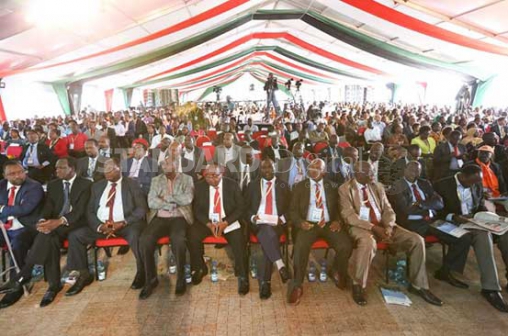×
The Standard e-Paper
Stay Informed, Even Offline

The just concluded third annual devolution conference in Meru provided governors an avenue to show case strides made in their counties.
Just like a beauty pageant where contestants put their best foot forward, county governments were falling over themselves buying space in various media platforms to show the world what they have done in the last three years.